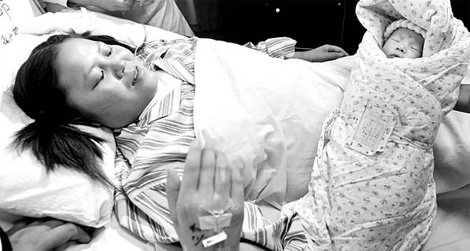China
H1N1 jab rolled out to pregnant women and migrant workers
By Shan Juan (China Daily)
Updated: 2009-12-12 09:10
Pregnant women will now be able to get the H1N1 vaccination in China, thanks to a roll-out of the inoculation program that will also prioritize migrant workers and people in close contact with animals, such as veterinarians.
The extension was made as experts cautioned that the virus will peak in the coming months.
China has vaccinated more than 30 million people on the mainland since late September. So far, the injections have been targeted at students, those with chronic illnesses and people in key public service positions, such as medical workers.
"With the constantly changing pandemic situation in the nation, we have included more people as vaccination priorities," said Liang Wan-
nian, director of the emergency response office under the Ministry of Health.
Liang said health authorities were working hard to speed up the inoculation program in the lead-up to the New Year and Spring Festival holidays, when tens of millions of travelers will be on the move.
|
 Zhang Guangying looks at her baby for the first time after its birth at Shengjing Hospital in Shenyang, capital of Northeast China's Liaoning province, on Friday. One month ago, Zhang developed severe H1N1 symptoms and was listed in serious condition. Following her successful treatment, Zhang, who was close to death at one time, fully recovered and gave birth to her healthy baby. [China Daily] |
"We hope all high-risk people will get the shot before the Spring Festival exodus for family reunions, " he said.
Liang said the program was not proceeding as well as hoped because people were needlessly cautious about the vaccine's safety.
Currently, around one million people are being vaccinated each day.
"We hope to increase that to 1.5 million," he said.
Health Minister Chen Zhu had earlier pledged at least 65 million people would be vaccinated by the end of year.
The latest online survey by China Daily and Sohu.com, one of China's major news portals, shows 40.38 percent of the 2,286 respondents would not take the vaccination because of safety fears. Almost the same number said they would accept it.
| ||||
By Monday, about 3,631 people out of the 30 million who had the injection had adverse reactions. Most were mild and temporary.
The four deaths among the 30 million recipients were not related to the vaccine, according to autopsies, he added.
"With the vaccination program covering such a huge population, the possibility of coincidental medical events, including deaths, is definite," added Liang Wannian.
The government is also monitoring the H1N1 outbreak to see if it mutates into a strain that is more lethal or more drug-resistant, he said.
"That's part of the reason why we'll vaccinate people in close contact with animals," Liang noted, citing the possibility of cross-infection between humans and animals.








